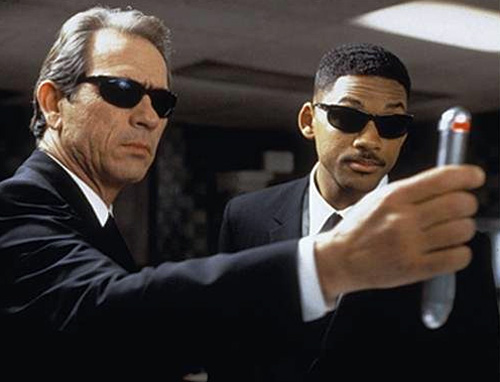
The nonsensical parrot noises
frothing from the beaks of
our Magnificent Nine ...
could not reasonably have come
from reasonable minds.
And that begs the question:
Where did the nonsensical, patent-related
gobbledygook really come from?

One need look no further than
the amicus briefs of the so-called
"frenemies of the court".
... Parrot hears, parrot parrots:
"Generic" computers and graphic claims that are "yawn-drawn" indeed!
The EFF Brief
"B. At a Minimum, Performance of an Otherwise
Abstract Idea “on a Computer” or “on the
Internet” [performance stage] Should Not Make that Idea Non-
Abstract

In effort to avoid preemption, courts have rightfully
found that performing an abstract idea on a general
purpose computer, without more, does not make that
invention patent-eligible. For example, in
Dealertrack, ... The claims at issue here, like those
in Dealertrack, Benson, and Bilski, take an abstract
idea—using a third-party intermediary to settle risk—
and merely tie that idea to a general “data processing
system” (in the system claims) and a “computer program
... comprising a computer readable storage medium” (in
the media claims). CLS Bank Br. at 48-51. Nevertheless,
five judges on the Federal Circuit would have found these
system claims patent-eligible. ..."
Microsoft Brief
"II. THE PATENTS AT ISSUE IN THIS CASE ARE NOT
DIRECTED TO COMPUTER-IMPLEMENTED INVENTIONS
AND ARE INELIGIBLE UNDER § 101
This case does not concern a computer-implemented
invention. Rather, the patents at issue here are directed
to an unpatentable business method combined with an
equally abstract directive to perform that method using a
computer [performance stage]. Petitioner thus misframes the matter before
the Court when it seeks a broad referendum on whether
“claims to computer-implemented inventions * * * are
directed to patent-eligible subject matter within the
meaning of 35 U.S.C. § 101” (rather than being categorically
excluded under the abstract-ideas exception). Pet.
Br. i. That begs the antecedent question whether
petitioner’s business-method-based claims truly are
“computer-implemented” inventions. They are not.

There is a broad spectrum of patents
that invoke use of a computer, some of which will be
unpatentable “abstract ideas,” while others are patentable
applications. At one end [of our 1-dimensional "spectrum"], as discussed above, are
computer-implemented inventions that involve legitimate
innovations in computer science, computerized systems,
or other technological or industrial fields. Such software
innovations are no different than other types of technological
inventions that have long been patent eligible
under § 101. There should be no doubt that they, too, are
patent eligible.
At the other end of the spectrum are many so-called
“business method” patent claims. Such claims primarily
involve processes in non-technological fields, like business
or finance. Because such claims are concerned with
intangible concepts about organizing human behavior
and transactions, they often will implicate the “abstract
ideas” exception to § 101. Bilski, 130 S. Ct. at 3229-3230.
The fact that a business-method claim may also instruct
that the concept be implemented using a computer is not
itself sufficient “to transform an unpatentable [abstract
idea] into a patent-eligible application of such [an abstract
idea].” Mayo Collaborative Servs. v. Prometheus
Labs., Inc., 132 S. Ct. 1289, 1294 (2011).
Petitioner’s patents fall into the latter category. The
claims all focus ... Confirming the invalidity of petitioner’s
business-method patents would not, under an appropriate
standard, imperil the patent eligibility of
computer-implemented inventions that represent true
technological advances.

3 comments:
Hear hear
If you want to "hear" it, click on "Go Ask Alice" at the bottom of the next above post ;-)
New research article confirms what is alleged here. SCOTUS gets its "facts" from frenemey of the court briefs:
Seeking Facts, Justices Settle for What Briefs Tell Them
Post a Comment